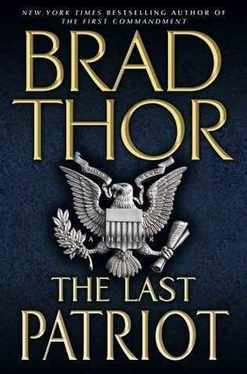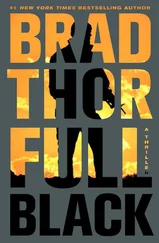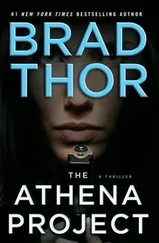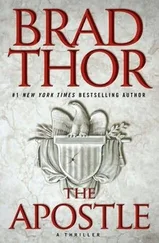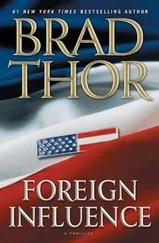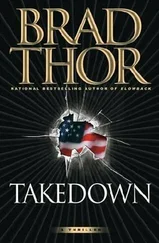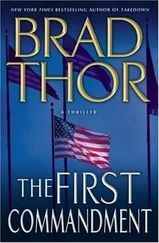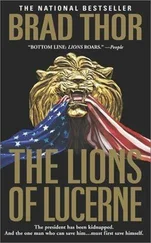“President Rutledge had believed that fundamentalist Islam was an enemy the likes of which no other American president had ever experienced before, but he was wrong.”
With those words, it dawned on Harvath. “Because Thomas Jefferson was the first American president to have gone to war against fundamentalist Islam.”
Nichols nodded. “The tradition of keeping a private, presidential diary was begun by George Washington and was known only to successive American presidents and their naval stewards. Rutledge had gone to the diaries after 9/11 to seek guidance from his predecessors and that’s where he encountered Jefferson ’s experience with fundamentalist Islam.
“Jefferson was convinced that one day Islam would return and pose an even greater threat to America. He was obsessed with the subject and had committed himself to learning everything he could about it.”
Harvath was struck by how prescient Jefferson had been.
“It was in going through Jefferson ’s diary,” said Nichols, “that Rutledge discovered something extraordinary.”
Most Americans were unaware of the fact that over two hundred years ago, the United States had declared war on Islam, and Thomas Jefferson had led the charge. For that reason, Professor Nichols felt it important to set the backdrop for what he was working on.
“At the height of the eighteenth century,” he began, “Muslim pirates were the terror of the Mediterranean and a significant swath of the North Atlantic. They attacked every ship in sight and held the crews for exorbitant ransoms. The hostages were subjected to barbaric treatment and wrote desperate, heart-wrenching letters home begging their governments and family members to pay whatever their Mohammedan captors demanded.
“These extortionists of the high seas represented the Islamic nations of Tripoli, Tunis, Morocco, and Algiers-collectively referred to as the Barbary Coast-and presented a dangerous and unprovoked threat to the new American republic.
“Before the revolutionary war, U.S. merchant ships had been under the protection of Great Britain. When the U.S. declared its independence and entered into war, the ships of the United States were protected by France. Once the war was won, America had to protect its own fleets.”
“Hence the birth of the U.S. Navy,” added Tracy.
Nichols shook his head. “It didn’t happen as quickly as you might think. Beginning in 1784, seventeen years before he would become president, Thomas Jefferson left for Paris to become America ’s Minister to France. That same year, the United States Congress sought to appease its Muslim adversaries by following in the footsteps of European nations who paid bribes to the Barbary States, rather than engaging them head-on in war.
“But then, in July of 1785, Algerian pirates captured two American ships and the Dey of Algiers demanded an unheard-of ransom of nearly $60,000.
“It was extortion, plain and simple, and Thomas Jefferson, now U.S. Minister to France, was vehemently opposed to any further payments. Instead, he proposed to Congress the formation of a coalition of allied nations who together could force the Islamic states into perpetual peace.”
The plan sounded all too familiar to Harvath, who remarked, “A coalition of the willing?”
“Quite,” said Nichols, “but Congress was disinterested in Jefferson ’s plan and decided to pay the ransom.
“In 1786, Thomas Jefferson and John Adams met with Tripoli ’s ambassador to Great Britain to ask him by what right his nation attacked American ships and enslaved American citizens.
“He claimed that the right was founded on the laws of their prophet and that it was written in the Koran that all nations who didn’t acknowledge their authority were sinners, and that it was not only their right and duty to make war upon these sinners wherever they could be found, but to make slaves of all they could take as prisoners, and that every Muslim slain in battle was guaranteed a place in Paradise.
“Despite this stunning admission of premeditated violence on non-Muslim nations, as well as the objections of numerous notable Americans, including George Washington, who warned that caving in was both wrong and would only further embolden their enemy, the United States Congress continued to buy off the Barbary Muslims with bribes and ransom money.
“They paid Tripoli, Tunis, Morocco, and Algiers upwards of one million dollars a year over the next fifteen years, which by 1800 amounted to twenty percent of the United States government’s annual revenues.
“ Jefferson was disgusted. To add insult to injury, when he was sworn in as the third president of the United States in 1801, the pasha of Tripoli sent him a note demanding an immediate payment of $225,000 plus $25,000 a year for every year thereafter. That was when everything changed.
“ Jefferson let the pasha know, in no uncertain terms, what he could do with his demand. The pasha responded by chopping down the flagpole in front of the U.S. Consulate and declaring war on the United States. Tunis, Morocco, and Algiers immediately followed suit.
“Jefferson had been against America raising a naval force for anything beyond coastal defense, but having watched his nation be cowed by Islamic thuggery for long enough, he decided that it was finally time to meet force with force.
“He dispatched a squadron of frigates to the Mediterranean to teach the Muslim nations of the Barbary Coast a lesson they would never forget. Congress authorized Jefferson to empower U.S. ships to seize all vessels and goods of the pasha of Tripoli and also to ‘cause to be done all other acts of precaution or hostility as the state of war would justify.’
“When Algiers and Tunis -who were both accustomed to American cowardice and acquiescence-saw that the newly independent United States had both the will and the might to strike back, they quickly abandoned their allegiance to Tripoli.
“Nevertheless, the war with Tripoli raged for four more years and flared up once more in 1815. The bravery of the United States Marine Corps in these wars led to the line ‘to the shores of Tripoli’ in the Marine hymn and they would ever after be known as ‘leathernecks’ for the leather collars of their uniforms that prevented their heads from being chopped off by Muslim scimitars when boarding their ships.
“Islam, and what its Barbary followers justified doing in the name of their prophet and their god, disturbed Jefferson quite deeply. America had a tradition of religious tolerance, in fact Jefferson himself had coauthored the Virginia Statute for Religious Freedom, but fundamentalist Islam was like no other religion the world had ever seen. A religion based upon supremacism whose holy book not only condoned but mandated violence against unbelievers was unacceptable to him.
“As I mentioned, one of Jefferson’s greatest fears was that someday this brand of Islam would return and pose an even greater threat the United States.”
“He was definitely ahead of his time on that one,” remarked Tracy.
“Long before leaving for France,” Nichols continued, “ Jefferson had committed himself to learning everything he could about the tenets of Islam and also about how its radical, warlike doctrine could be defeated without another shot ever being fired.”
“Which is why he owned a copy of the Koran,” added Harvath.
“Perhaps,” said Nichols. “But it has also been suggested that Jefferson’s copy of the Koran may have been purchased in 1765 while he was studying law at the College of William amp; Mary. It’s possible he was studying it as a legal text or for comparative religion purposes. We don’t know for sure.”
“Is that the same Koran a Muslim congressman used for his swearing-in ceremony a couple of years ago?” asked Tracy.
Читать дальше
